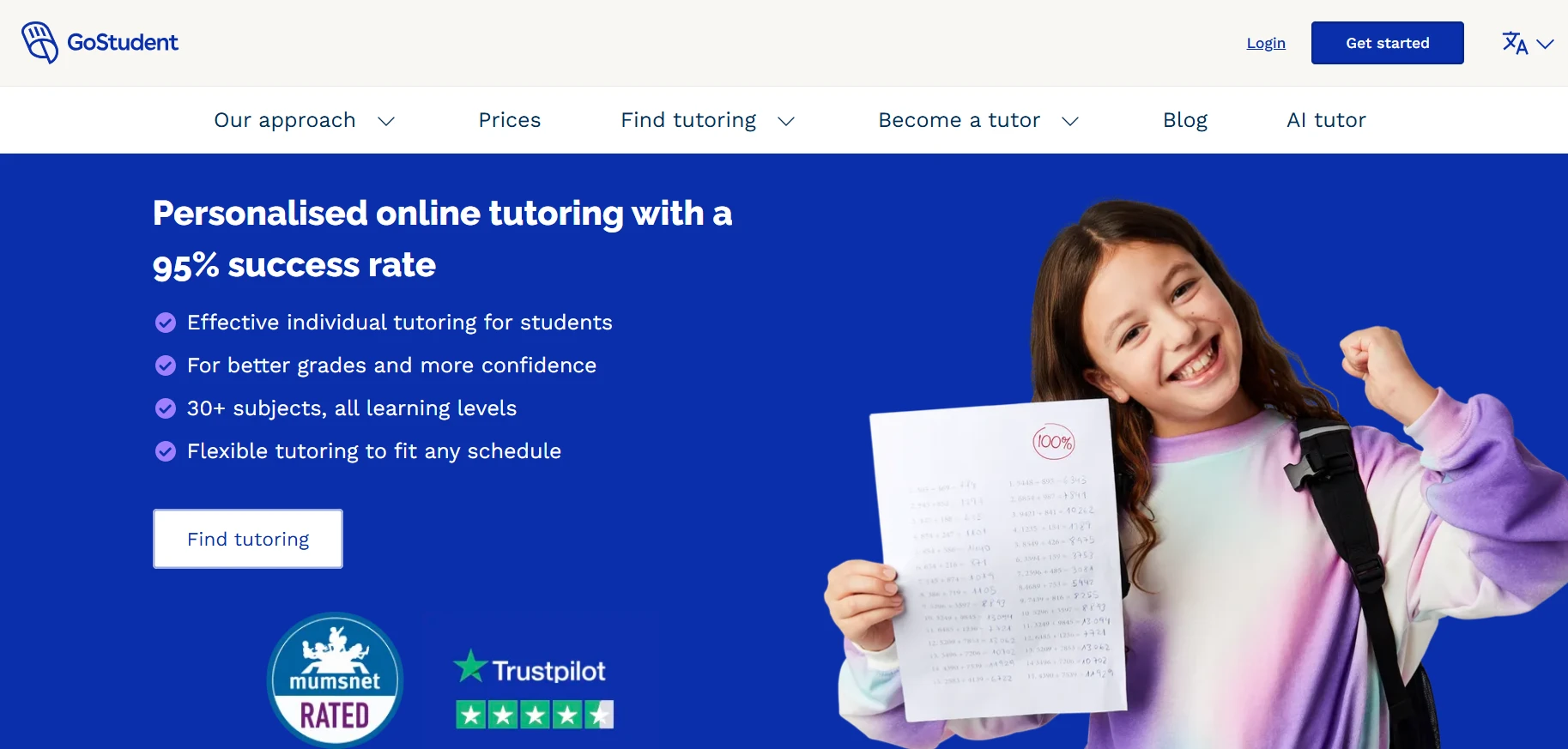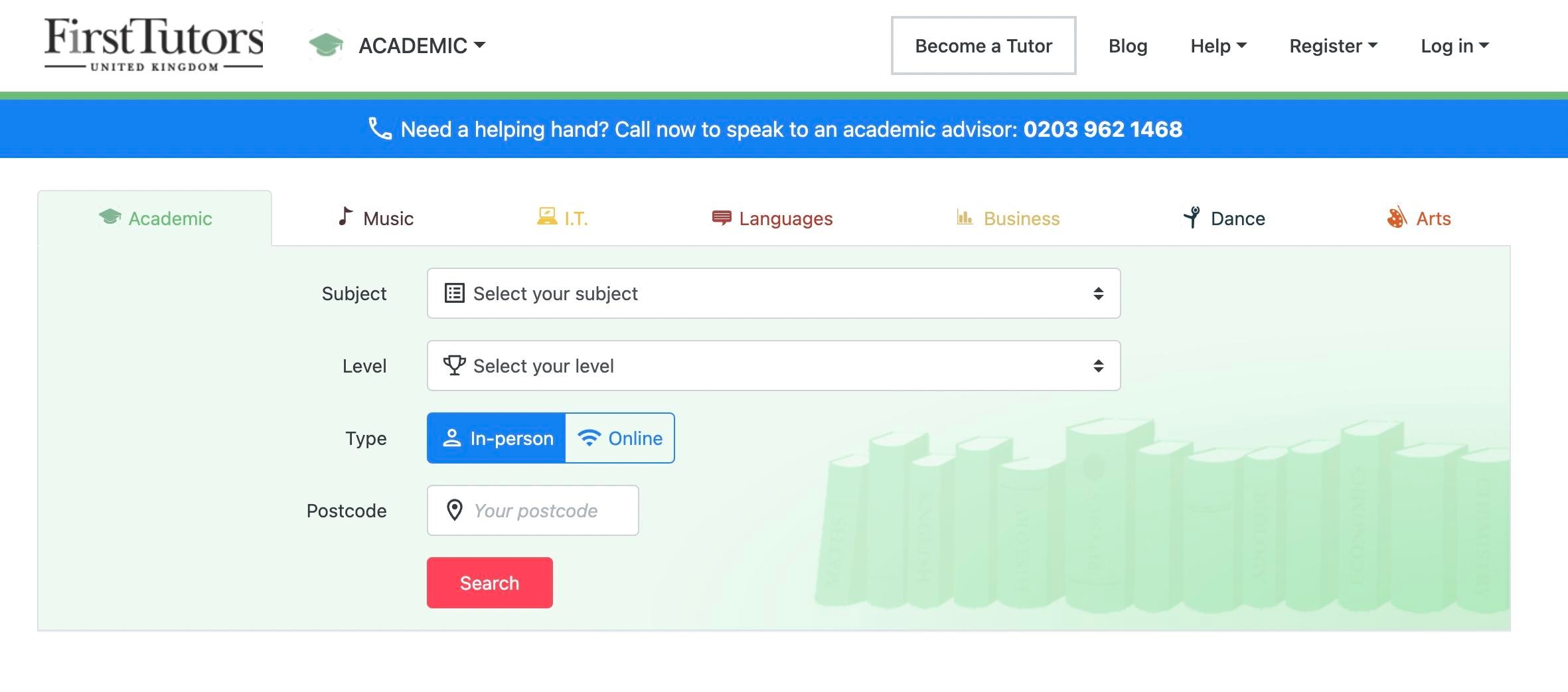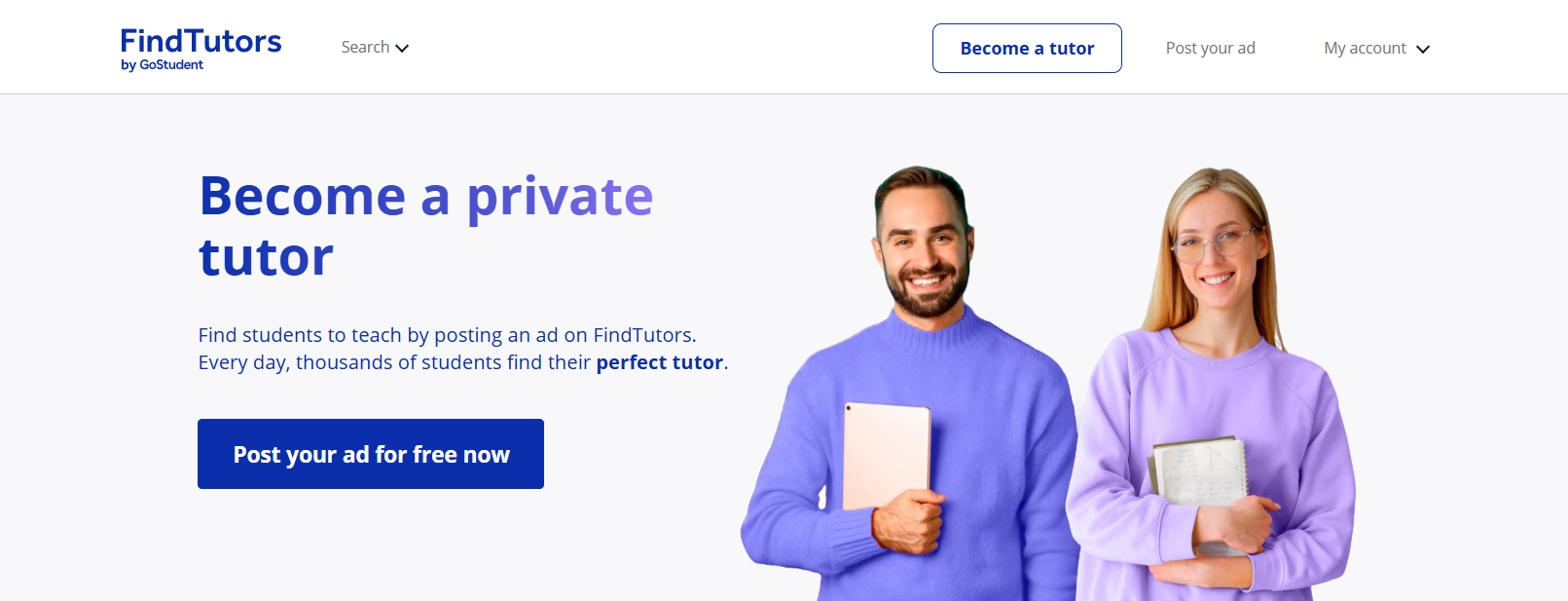- Blog
- How to Become a Tutor as a Student: 9 P...
How to Become a Tutor as a Student: 9 Practical Steps
Being at university often comes with the need for some extra income. Whether you're looking to fund hobbies, cover living costs, or simply earn your own money, taking on tutoring jobs can be a smart move!
One of the most common questions that university students ask is: can you become a tutor while you are still studying? The answer is yes! Many students enjoy this rewarding part-time job and build valuable skills along the way.
Tutoring allows you to support others, help pupils develop, gain professional expertise that will strengthen your CV and allow you to access further professional opportunities. If you have strong knowledge across different subjects, enjoy working with younger learners, and want the freedom to set your own schedule, tutoring could be the perfect fit for you.
Content Table
- Key Takeaways
- Can You Become an Online Tutor Without a Degree?
- Requirements for Becoming a Private Tutor
- Which Subjects Can You Teach?
- How Much to Charge as a Student Tutor in the UK
- Find Online Tutoring Jobs
- Tools to Make Tutoring Easier
- Factors to Consider Before You Begin Tutoring
- The Benefits of Becoming a Tutor as a Student
In this guide, you’ll find out how to start tutoring, explore whether you want to teach online or in person, and learn how to set your rates.
We’ll cover all the steps and requirements, together with the platforms that help students find you so you can begin your tutoring journey with confidence!
Key Takeaways: Becoming a Tutor as a Student
-
You don’t need teaching qualifications to become a tutor while at university.
-
You can teach online, in-person, or both — depending on your availability.
-
Earn on average between £12–£30 per hour, setting your own hourly rate and timetable. Higher rates may be set for advanced tuition levels and niche subjects.
-
A strong tutor profile and clear communication help you find the right students quickly.
-
Tutoring can provide benefits such as professional experience and extra income.
Why Students Make Great Tutors
Many parents actively search for university students as tutors because they often have up-to-date knowledge, relatable study tips, and recent exam experience.
If you’re studying maths, science, or another specialist discipline, you’re in an excellent position to support pupils tackling exams in these subjects. This is especially true if you have struggled with an aspect of your studies, as you'll be able to empathise with your students and work together to find solutions.
Student tutors also tend to charge a lower hourly rate, making them a budget-friendly option for families seeking quality tuition - this means that you have access to a wide pool of potential students.
Can You Become an Online Tutor Without a Degree?
Absolutely! You don’t need a university degree to teach online or in person. Many tutoring companies and platforms welcome university students as private teachers, especially if you have strong grades, excellent communication skills, and a passion for sharing your knowledge.
While you don't have to hold a degree, you may still need to meet certain requirements to become a tutor:
-
Some platforms request ID verification.
-
You may be asked to provide your personal details: name, age, email, phone number and permanent home address.
-
You may need a DBS check if you plan to tutor children and young adults.
-
Specific teaching qualifications may be necessary for specialist school roles or certain business contexts.

Requirements for Becoming a Private Tutor
Prerequisites to becoming a tutor can vary depending on what type of lessons you plan to teach.
|
Requirement |
Always needed? |
Notes |
|
Subject knowledge |
Yes |
Ideally, you should be at least one level above what you’re teaching (e.g. A-Level maths student teaching GCSE maths). |
|
ID verification |
Most of the time |
ID verification is required by most tutoring platforms. |
|
DBS check |
Sometimes |
Needed for in-person tutoring with younger pupils. |
|
Teaching qualification |
Not always required |
Formal qualifications may be useful for related school-based roles, such as teaching assistant |
Which Subjects Can You Teach?
You can teach any subject - or subjects - that you have expertise in, as long as you have the ability to transfer your knowledge. Some popular areas for private tuition are:
|
Subject |
Study Level |
Example Tutor |
|
Maths |
Primary to A-Level |
Engineering student |
|
English |
Primary to GCSE |
Literature student |
|
Science |
KS3 to A Level |
Biochemistry student |
|
Languages |
All levels, including pre-school |
Spanish Language student |
|
Coding |
All levels |
Computer Science student |
|
Music |
All levels |
Music student |
You can also tutor study skills, exam techniques, or time management capabilities to help students develop effective learning habits.
5. How to Start Tutoring as a Student: Step-by-step checklist
Here’s how to start tutoring as a student in the UK:
-
Pick a subject you know well and are confident teaching.
-
Decide whether to teach online, in person, or through a hybrid format.
-
Set your hourly rate based on your teaching experience and subject demand.
-
Join a tutoring platform like FindTutors or GoStudent.
-
Create your tutor profile — include qualifications, skills, and teaching methods.
-
Complete any training, ID verification, or interview steps.
-
Respond to your students quickly and professionally.
-
Use the messaging system and scheduling tools to manage your account and contact students.
-
Plan your next steps, such as increasing your hourly rate or expanding into new subjects.
How Much to Charge as a Student Tutor in the UK
When you start tutoring, setting your hourly rate is one of the most important decisions you'll have to make. Rates vary depending on several factors, so aim for a balance between being competitive and valuing your skills and time.
Typical hourly rates for student tutors in the UK:
-
£12–£15/hour – For beginners, group sessions, or younger pupils (Primary/KS3).
-
£15–£25/hour – For GCSE-level subjects such as maths, science, or languages.
-
£25–£30+/hour – For A-Level, university-level tuition, or specialist subjects like coding or advanced music theory.
Key factors affecting your rate:
-
Location: Tutors in London or major cities can often charge slightly more due to higher demand and living costs.
-
Subject and study level: Advanced or niche subjects often justify higher rates.
-
Experience: Starting out? Set a lower rate to attract your first students, then increase prices as you gain experience and positive reviews.
-
Lesson format: Teach online for wider reach and slightly lower rates, or charge more for in-person sessions to cover travel time.
Note that you need to register as self-employed with HMRC if you later go on to manage your own tutoring business. Be sure to check the requirements that align with your personal income threshold.
Tip: Look at other tutors on platforms like FindTutors to search current rates for similar subjects. This will help you plan a competitive price while valuing your expertise.
Find Online Tutoring Jobs: Top Platforms
You can find online tutoring jobs or work locally, depending on your location and availability. Let's take a look at some of the best platforms to work with as a private tutor.
6. Where to Find Tutoring Jobs as a Student
FindTutors
Ideal for beginners, FindTutors gives university students the chance to connect with learners across the UK. It supports different subjects, from academic tuition to hobbies like music and art.
-
Benefits: You can set your hourly rate, work online or in-person, and manage everything from one account.
-
Flexibility: Potential clients can search for your tutoring services, or you can browse students seeking a private teacher.
-
Choice of class format: Teach individual students, offer group lessons, or a combination
-
Full autonomy: No platform subscription costs or comission charges on lessons taught.
FindTutors is perfect for those who want freedom and the chance to build a rewarding part-time job around lectures.
Gostudent

GoStudent is a well-established company that hires qualified tutors for one-to-one online tuition for Key Stage 1-5 students.
-
Offers structured training and ready-made student bookings.
-
An application and ID verification are required.
-
Team-driven environment and assistance with student acquisition.
GoStudent is a good option for qualified university student tutors looking to specialise in private teaching for the UK curriculum.
First Tutors

First Tutors is a tutoring marketplace where private teachers pay a one-off fee to join and connect with parents and pupils.
-
Manage your own business, marketing, and schedule.
-
Contact students directly through the platform's integrated forum
First Tutors is suited to experienced tutors who are ready to operate independently.
MyTutor

MyTutor is an online education platform where tutors are vetted through an interview process.
-
Focused on academic subjects for GCSE and A Level students.
-
Access to teaching materials to boost lesson planning and content
MyTutor is suitable for tutors with high grades and proven teaching ability.
For most university students, FindTutors offers the best combination of variety, simplicity, and autonomy. It’s especially useful if you want to teach different subjects, manage your own timetable, and enjoy the benefits of flexible work.
Tools to Make Tutoring Easier
As an online tutor, having the right resources can improve your lessons and communication with students.
-
Online classroom tools: Virtual whiteboards and shared documents for homework help.
-
Messaging systems and team chat: Stay organised with clear contact between yourself, your pupils, and their parents.
-
Scheduling tools: Keep track of your availability and upcoming lessons.
-
Free resources: Some platforms provide downloadable study guides or quizzes to help your students to develop their learning skills.
Factors to Consider Before You Begin Tutoring
Before you begin, think about:
-
Your availability and schedule during term time.
-
Which subjects you’re most confident in teaching.
-
Whether you want the independence of a platform like FindTutors or a structured company like GoStudent.
-
The benefits that you want: to supplement your income, obtain experience for your CV, or improve your communication skills.
The Benefits of Becoming a Tutor as a Student
Tutoring offers more than just extra cash. It’s a chance to:
-
Gain new experience and develop your education skills.
-
Build meaningful professional connections with students and parents.
-
Improve your own understanding of your subject matter.
-
Enjoy a rewarding role that fits around your life and studies.
By following these steps, you’ll not only become a tutor, but also create a flexible business that grows with you!

Tutoring for Success
Whether you’re looking to teach online, in person, or both, tutoring as a student gives you the freedom to plan your schedule, set your hourly rate, and make a positive impact.
With platforms like FindTutors, you can connect with your first students, explore different subjects, and build a part-time role that’s both rewarding and financially beneficial.
Take the next step today and start shaping a tutoring journey that works for you — and for the students you’ll inspire!




